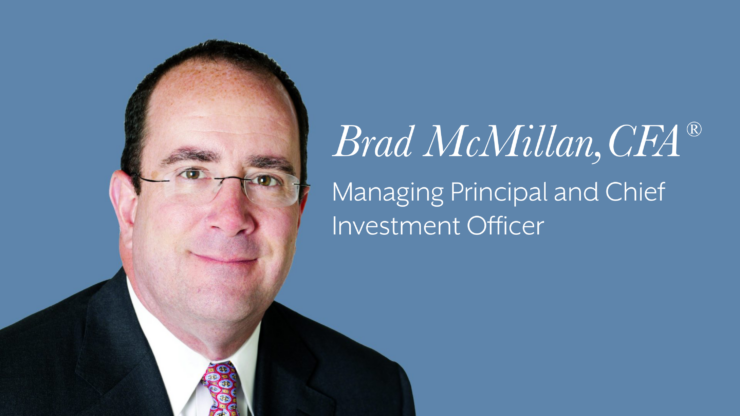5 Financial Habits for Long-Term Success
October 10, 2024
Presented by: Commonwealth Financial Network®
In the world of personal finance, it’s not just about how much you earn; it’s about how you manage what you have. Whether you’re fresh out of college, eyeing retirement, or somewhere in between, developing strong financial habits is critical for long-term success. This article will explore five key moves that can help you build wealth, reduce financial stress, and achieve your long-term goals. Although they aren’t quick fixes, you’ll be amazed at how they can positively affect your financial future if you stick with them.
1. Put Savings & Investments in Autopilot
Put Savings and Investments on Autopilot You’ve heard this before, but don’t dismiss it as a cliché: pay yourself first. This means setting up automatic transfers from your checking account to your savings and investment accounts as soon as you get your paycheck. Begin by logging in to your online banking platform and setting up recurring transfers. You can start small—even 5 percent is worthwhile—and gradually increase the percentage over time. If your employer offers a 401(k) match, ensure that you’re contributing enough to take full advantage of this free money. Remember, even small, consistent contributions can grow significantly over time due to compound interest.
2. Cut Back on Impulse Purchases
That late-night online shopping scroll that somehow ends with a cart full of stuff you didn’t know you “needed” isn’t helping you reach your money goals. To reel in impulse purchases, try setting aside a cooling-off period for nonessential items you’re considering buying. Instead of purchasing, add them to a wish list on your phone or to a Post-it Note—and keep it out of your cart. Then, give it a day or two. That “must-have” item might seem unnecessary after 24 hours. You can also try the 30-day rule for larger purchases, giving yourself a full month to decide if it’s worth the cost. You may realize you didn’t need it that much.
3. Track Your Spending
To make informed money decisions, you need to know where your cash is going. Keeping track of spending helps you figure out where you can cut back and increase the funds you put toward your goals. Start by choosing a way to record your purchases, whether it’s a budgeting app, a spreadsheet, or just an old-fashioned notebook. Record every expense, no matter how small, for one month. Then, go over your spending patterns and figure out where you can make cuts. You might find some surprises, like buying coffee, snacks, or a daily lunch salad add up to a vacation’s worth of cash over time. Use this information to create a practical, goal-centered budget, and continue tracking to ensure that you’re sticking to it.
4. Get Familiar with Your Credit Report
Your credit score affects everything from loan approval to interest rates, so it’s a major factor in your financial life. Make it a habit to check your credit report regularly to catch errors and find ways to improve your score.
Hot Tips
Every 12 months, you’re entitled to one free credit report by mail from each of the three major credit bureaus (Equifax, Experian, and TransUnion) through annualcreditreport.com. If you set a reminder to request one report every four months, you’ll have a year-round overview of your credit. You can also receive free weekly online credit reports through the same site. What should you be on the lookout for?Any unfamiliar accounts, incorrect balances, or payments that mistakenly show they were late. If you find issues, file a dispute with the credit bureau as soon as possible. Regularly monitoring your credit can also help you discover identity theft early.
5. Stick to It
It’s not always fun or easy to stick to a financial plan, but consistency is critical when it comes to money matters. Developing discipline helps you stay on track, even when you spot a great sale or find a must-have collector’s item. Start by setting clear, achievable goals. Write them down and keep them somewhere you’ll see them often, like your fridge or as a phone background. Break larger goals into smaller, manageable steps. If you want to save $5,000 for an emergency fund, for instance, set monthly or weekly savings targets. Create accountability by sharing your goals with a trusted friend or family member. When you’re feeling discouraged or tempted, remind yourself that your long-term financial success is worth it.
Developing strong financial habits is a marathon, not a sprint. It’s about making small, smart choices each day. It requires patience, persistence, and a willingness to learn from both successes and setbacks. Start by choosing one or two habits to focus on, and gradually incorporate the others as you become more comfortable.
As always, we’re here to help you reach your goals. Feel free to reach out for more information or advice on how to adopt these habits for a more financially secure future.
This material has been provided for general informational purposes only and does not constitute either tax or legal advice. Although we go to great lengths to make sure our information is accurate and useful, we recommend you consult a tax preparer, professional tax advisor, or lawyer. © 2024 Commonwealth Financial Network®


